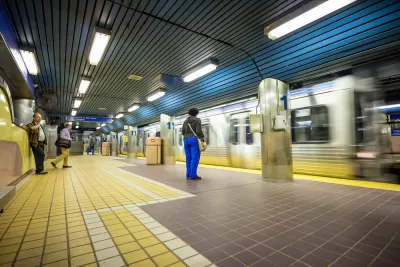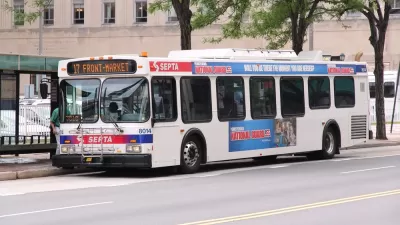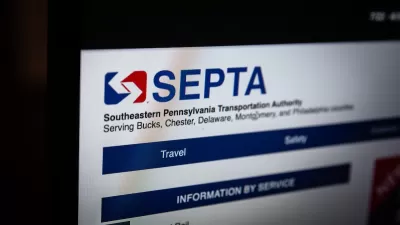The city’s upcoming budget doesn’t include the Zero Fare program, which offers free SEPTA fare to more than 24,000 residents.

Philadelphia Mayor Cherelle Parker omitted the city’s innovative free transit program from its upcoming budget, signaling a potentially abrupt end for a program that awarded free transit fare cards to over 24,000 qualifying low-income residents.
As Kea Wilson explains in Streetsblog USA, the program was the first of its kind in that it identified people who qualified based on other received benefits and sent them unlimited transit fare cards without making them go through an application process.
Of the more than 24,000 people who received that golden ticket as part of the initial two-year, $62-million pilot, the regional transit agency, SEPTA, says 64 percent are still riding today — a rate which proponents call “phenomenal” for a program that some feared would struggle to locate riders grappling with housing insecurity, or who might not believe their good fortune and just chuck their free cards in the trash.
According to Wilson, “A 2023 study showed that free transit doesn't significantly impact household earnings for low-income people, but it does ‘improve individuals’ well-being, and in particular health,’ which can have downstream economic benefits for public health systems, not to mention individuals' ability to access child care, medical care, or even simple quality time with family and friends.” Philadelphia transit advocates say extending the Zero Fare program would help improve SEPTA’s ridership and encourage other ‘choice’ riders who can afford fares but choose to drive to use transit instead.
FULL STORY: Is Philadelphia About to Eliminate America’s Best Free Transit Program?

Alabama: Trump Terminates Settlements for Black Communities Harmed By Raw Sewage
Trump deemed the landmark civil rights agreement “illegal DEI and environmental justice policy.”

Study: Maui’s Plan to Convert Vacation Rentals to Long-Term Housing Could Cause Nearly $1 Billion Economic Loss
The plan would reduce visitor accommodation by 25% resulting in 1,900 jobs lost.

Why Should We Subsidize Public Transportation?
Many public transit agencies face financial stress due to rising costs, declining fare revenue, and declining subsidies. Transit advocates must provide a strong business case for increasing public transit funding.

Paris Bike Boom Leads to Steep Drop in Air Pollution
The French city’s air quality has improved dramatically in the past 20 years, coinciding with a growth in cycling.

Why Housing Costs More to Build in California Than in Texas
Hard costs like labor and materials combined with ‘soft’ costs such as permitting make building in the San Francisco Bay Area almost three times as costly as in Texas cities.

San Diego County Sees a Rise in Urban Coyotes
San Diego County experiences a rise in urban coyotes, as sightings become prevalent throughout its urban neighbourhoods and surrounding areas.
Urban Design for Planners 1: Software Tools
This six-course series explores essential urban design concepts using open source software and equips planners with the tools they need to participate fully in the urban design process.
Planning for Universal Design
Learn the tools for implementing Universal Design in planning regulations.
Smith Gee Studio
Alamo Area Metropolitan Planning Organization
City of Santa Clarita
Institute for Housing and Urban Development Studies (IHS)
City of Grandview
Harvard GSD Executive Education
Toledo-Lucas County Plan Commissions
Salt Lake City
NYU Wagner Graduate School of Public Service





























